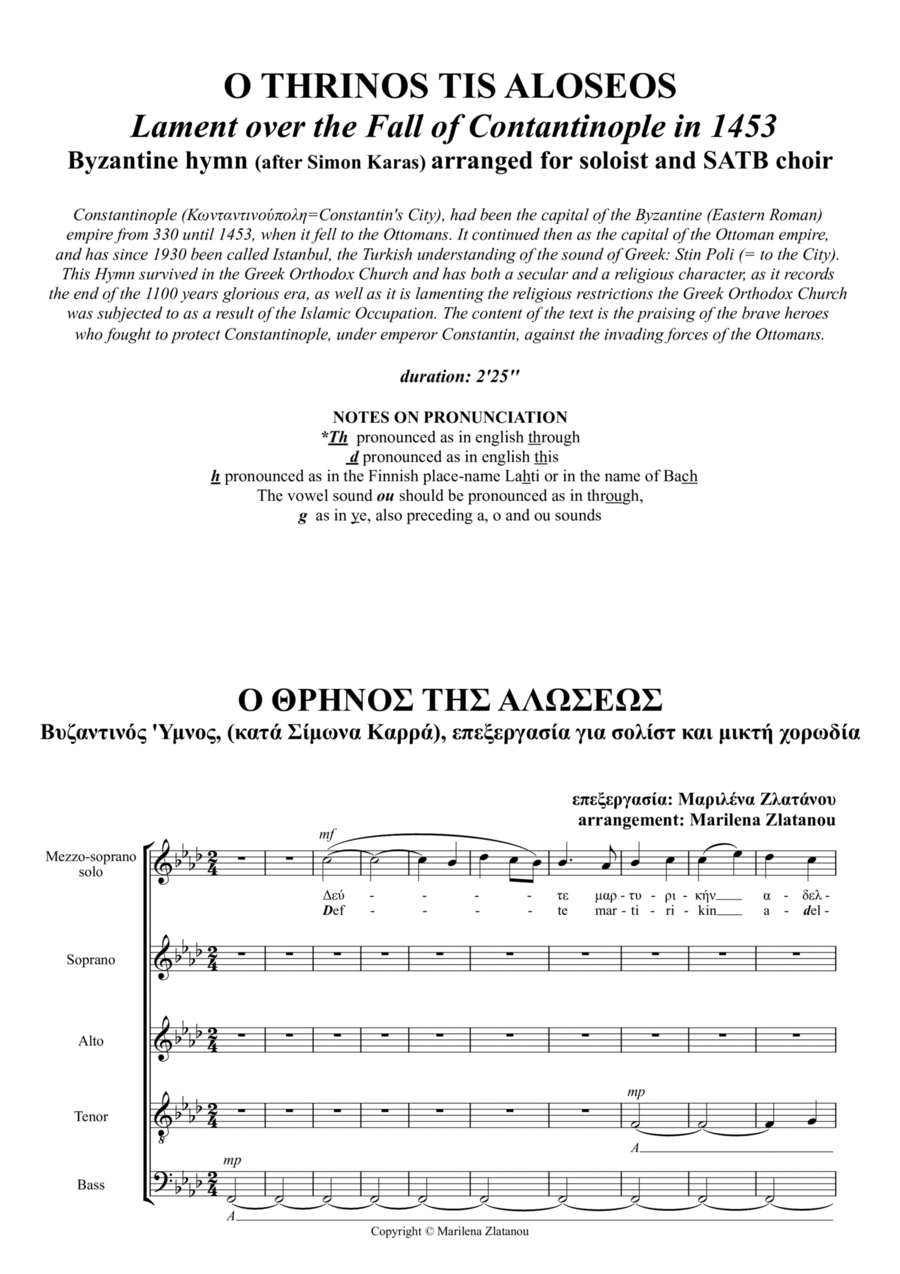Choral Choir,Choral (SATB) - Level 3 - Digital Download SKU: A0.1343529 Composed by Byzantine hymn. Arranged by Marilena Zlatanou. Classical. 6 pages. Marilena Zlatanou #929058. Published by Marilena Zlatanou (A0.1343529). BYZANTINE HYMN: O THRINOS TIS ALOSEOS: Lament over the Fall of Constantinople in 1453 (after Simon Karas) arranged for soloist and SATB choirConstantinople (ÎÏνÏανÏινοÏÏολη=Constantin's City), had been the capital of the Byzantine (Eastern Roman) empire from 330 until 1453, when it fell to the Ottomans. It continued then as the capital of the Ottoman empire, and has since 1930 been called Istanbul, the Turkish understanding of the sound of Greek: Stin Poli (= to the City). This Hymn survived in the Greek Orthodox Church and has both a secular and a religious character, as it records the end of the 1100 years glorious era, as well as it is lamenting the religious restrictions the Greek Orthodox Church was subjected to as a result of the Islamic Occupation. The content of the text is the praising of the brave heroes who fought to protect Constantinople, under emperor Constantin, against the invading forces of the Ottomans. duration: 2'25'' Phonetic transcription in the Latin alphabet is notated right below the original Greek text, English translation, and a key to Greek Pronunciation are provided on the title page. The mp3 file provided is exported from the sibelius file.For more information on the arranger, (member of TONO, the Norwegian copyright org.), please visit website www.zlatanou.netAs a Greek living in Norway for most of my adult life, and in my many yearsâ work as a conductor of a Norwegian choir specializing in Greek music (!), I have experienced the need to enrich the choirâs repertoire with both folk song- as well as other -arrangements of Greek music: This gave me the opportunity to share with our audiences some of the centuries-long musical heritage, as well as helping me make known to them some of the History behind the music of a country of such international historical influence in the past, and such a tourist magnet in our times.
